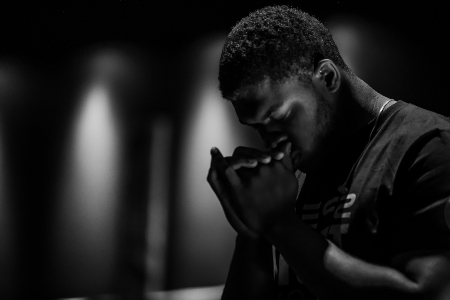 By Beth Ann Olesen
By Beth Ann Olesen
The stay-at-home order has forced me to consider my prayer life. During the normal hustle and bustle of life as a working mom of three young children, it is all too easy to avoid thinking too deeply about the shallowness of my prayer life. I tend to pray for something, ask the Lord to speak to me and guide my path, and then move on to the next thing, not giving myself the time, space, or quiet to hear the Lord’s voice. Too often, I treat prayer as something I need to cross off my to-do list. And then I have the nerve to feel frustrated that I am uncertain and confused about God’s will.
Being at home all day has changed that. While I still have to work and I still have three young children, there are more moments of silence and mandatory self-reflection than I am used to, and, quite frankly, than I am comfortable with. And it has left me no longer being able to ignore my stubborn and unwilling heart.
I’ve recently started reading A Praying Life by Paul E. Miller. He writes, “Prayer exposes how self-preoccupied we are and uncovers our doubts.” In an attempt to deepen my prayer life and my relationship with the Lord, I often finish time in the Word and prayer angry with myself for how often I enter time with the Lord with an agenda. Miller continues, “Nothing exposes our selfishness and spiritual powerlessness like prayer.” Amen, Paul.
As I force myself to be comfortable with being uncomfortable, I am learning some disconcerting truths about myself. I’ve realized that often I don’t pray about things in my life that I know will force me to give up my idols of comfort and identity in things other than Christ. Or, I pretend I can’t hear Him when He is clearly speaking to me. Really what this reveals is a lack of trust. I don’t trust that God’s way, His plan, is better than mine. I don’t trust that He is always working for my good. I don’t trust that eternity is more important than the flesh.
These things are hard to admit, not only out loud, but to myself as well. I so often feel that I am coming up short, found to be lacking. And then I remember that’s the point. If I didn’t come up short, if I wasn’t found lacking, there would be no need for God’s grace. And spiritual growth is a lifelong journey. That’s why Paul writes in 1 Timothy, “train yourself to be godly” (7, emphasis mine).
Think of training for a marathon. There is pain in the process. This is reiterated in Hebrews: “For the moment all discipline seems painful rather than pleasant, but later it yields the peaceful fruit of righteousness to those who have been trained by it” (12:11). God doesn’t promise that the journey will be painless, which I am certainly experiencing now, but He does promise it will be worth it. That, “He who began a good work in you will bring it to completion at the day of Jesus Christ” (Philippians 1:6). That is what I will choose to cling to.
